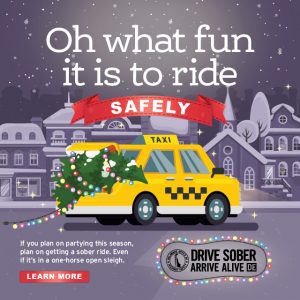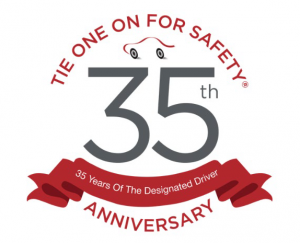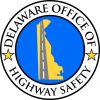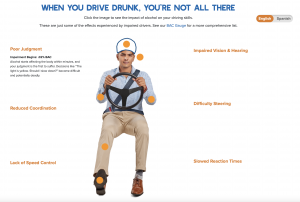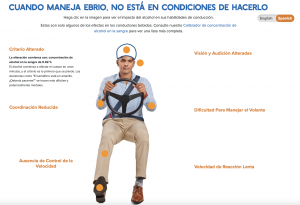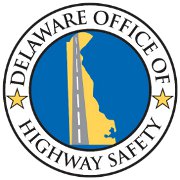Plan for a Sober Driver This St. Patrick’s Day
DOVER, Del. (March 14, 2023) —The Delaware Office of Highway Safety (OHS) is reactivating its SoberLift program and bringing awareness to the negative consequences of driving under the influence. In addition, OHS is continuing to partner with State and local law enforcement to conduct DUI patrols through March 19th. If your plans for the holiday include alcohol, make sure you plan for a sober driver.
OHS is bringing back its SoberLift program statewide for the upcoming St. Patrick’s Day holiday weekend and will be incorporating the program into this year’s St. Paddy’s Loop in Wilmington set for Saturday, March 11th. The SoberLift code will be valid from Saturday, March 11 at 9 a.m. to Sunday, March 12 at 2 a.m. in New Castle County and Thursday, March 16 at 7 p.m. to Sunday, March 19 at 2 a.m. statewide. To participate, text SoberLift at 888-991-2740 to receive a $20 Lyft voucher.
OHS began SoberLift in 2018 offering rideshare discount codes during the times of the year when we see an increase in impaired driving such as St. Patrick’s Day, Independence Day, and throughout the Holiday season. Since the start of the program, over 1,200 rides have been redeemed helping Delawareans get home safely.
“This year, St. Patrick’s Day falls on a Friday, and celebrations involving increased alcohol consumption are anticipated throughout the weekend,” said Richard Klepner, Deputy Director, Delaware Office of Highway Safety. “Don’t be the reason someone — including yourself — doesn’t get home. If you’ve been drinking, make the smart choice to plan for a sober driver to get you and your friends home safely.”
Click here to see our new Impaired driving campaign video https://youtu.be/6GDtqGhz8qw
In 2022, there were 1,201 crashes, 104 serious injuries and 4,655 arrests involving impaired driving in Delaware. Of those, 26 crashes, 2 fatalities, and 103 arrests occurred during the St. Patrick’s Day extended holiday weekend, from March 16 – March 21.
Nationally, according to NHTSA, 11,654 people were killed in drunk-driving crashes in 2020. On average, more than 10,000 people were killed each year from 2016 to 2020 — one person was killed in a drunk-driving crash every 45 minutes in 2020.
St. Patrick’s Day is one of the deadliest times on our nation’s roads. During the 2016-2020 St. Patrick’s Day holiday period (6 p.m. March 16 to 5:59 a.m. March 18), 287 lives were lost in drunk-driving crashes. In 2020 alone, 37 people were killed in drunk-driving crashes over the St. Patrick’s Day holiday period (6 p.m. March 16 to 5:59 a.m. March 18). Drivers should also keep an eye out for pedestrians. Walking while intoxicated can also be deadly; alcohol can affect your judgment and increase the risk to pedestrians of getting hit by a vehicle.
If you’re the designated driver, make sure you keep that promise of safety to yourself and your passengers. It can be a long night, but people are counting on you, not to mention the other drivers, passengers, and pedestrians on the streets. Take the role of a designated driver seriously — people are relying on you.
Celebrate with a Plan
Before ever heading out, it’s vital to plan ahead. Be honest with yourself: You know whether you’ll be drinking or not. Follow these ideas to ensure you and your fellow partygoers stay safe.
- Plan ahead: If you wait until you’ve been drinking to make a smart decision, you might not. Before you have one drink, designate a sober driver who won’t be drinking.
- You have options: designate a sober driver, call a taxi, or use a rideshare service. Getting home safely is always worth it.
- If it’s your turn to be the designated driver, take your job seriously and don’t drink.
- Do you have a friend who is about to drink and drive? Take the keys away and let a sober driver get your friend home safely.

About the Delaware Office of Highway Safety
The Office of Highway Safety (OHS) is committed to improving the safety of Delaware’s motoring public by focusing on behavioral traffic safety issues, such as impaired driving, seat belt use, speeding, child passenger safety, pedestrian and bicycle safety, motorcycle safety, and teen driving issues. FAQs can be found at ArriveAliveDE.com. Follow OHS on the Delaware Office of Highway Safety website, Facebook, Twitter, Instagram, and TikTok.
Media Contact:
Delaware Office of Highway safety
Jason Coleman
302-744-2743
